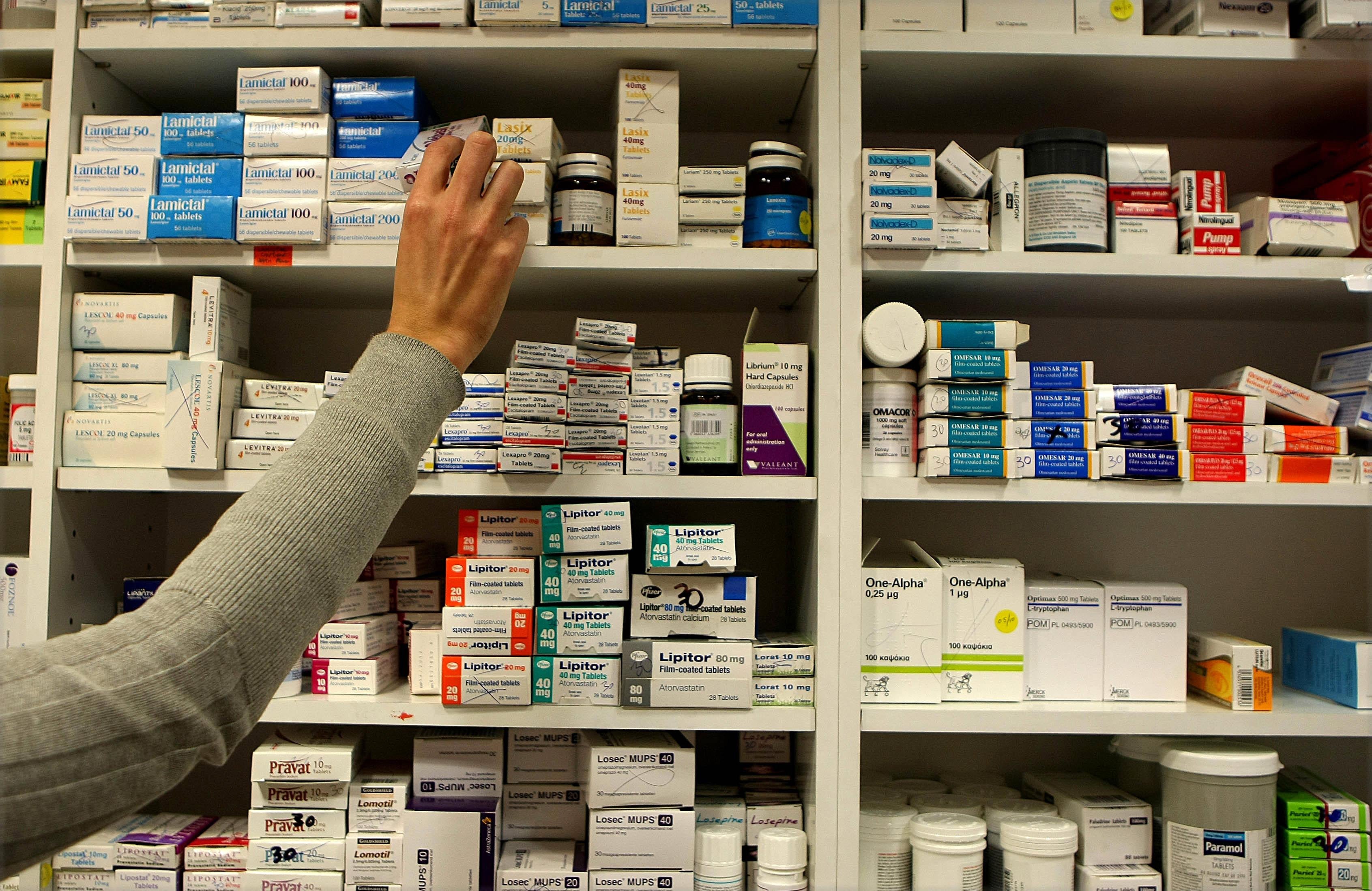New NHS payment scheme aims to encourage pharma to tackle superbugs
Nice on Tuesday published draft guidance.

Your support helps us to tell the story
From reproductive rights to climate change to Big Tech, The Independent is on the ground when the story is developing. Whether it's investigating the financials of Elon Musk's pro-Trump PAC or producing our latest documentary, 'The A Word', which shines a light on the American women fighting for reproductive rights, we know how important it is to parse out the facts from the messaging.
At such a critical moment in US history, we need reporters on the ground. Your donation allows us to keep sending journalists to speak to both sides of the story.
The Independent is trusted by Americans across the entire political spectrum. And unlike many other quality news outlets, we choose not to lock Americans out of our reporting and analysis with paywalls. We believe quality journalism should be available to everyone, paid for by those who can afford it.
Your support makes all the difference.A NHS subscription payment scheme to encourage pharmaceutical firms to develop medicines to tackle superbugs has led to two new drugs being on the verge of becoming available to UK patients.
The National Institute for Health and Care Excellence (Nice) said cefiderocol and ceftazidime–avibactam were close to becoming available to treat patients with severe drug-resistant infections who would otherwise have limited or no other treatment options.
Nice on Tuesday published draft guidance estimating their value to the NHS in England, measured in quality-adjusted life years (Qalys).
It said they will be the first antimicrobial drugs to be made available as part of a subscription-style payment model that aims to incentivise research and development of antimicrobials by testing new approaches to evaluating and paying for them.
The new subscription-style payment model is part of a project with NHS England and NHS Improvement and the Department of Health and Social Care (DHSC) designed to try to address the lack of new antimicrobials being developed and the growing threat posed by antimicrobial resistance, Nice said.
Antimicrobial resistance develops when the pathogens that cause infection evolve to make antibiotics and other antimicrobial drugs less effective, or stop them from working altogether.
In 2020, only 41 new antimicrobials were being tested in clinical trials compared with about 1,800 immuno-oncology drugs, Nice said.
It added that new antimicrobials, especially those targeting multi-drug-resistant pathogens known as “superbugs”, are subject to strict controls to restrict their use to slow the development of resistance, which means sales could be low.
But the watchdog said that the new payment scheme overcomes this by ensuring a fixed annual fee is paid to the company regardless of how many prescriptions are issued.
Nice said that the draft guidance for cefiderocol and ceftazidime–avibactam will inform commercial discussions between NHS England and NHS Improvement and the companies to agree payment levels in “subscription-style” contracts.
It said that the procurement process to select the two products for the project included a maximum contract value of £10 million a year for up to 10 years for each of the products.
This maximum contract value was set at a level where the payments would represent an incentive for investment should other countries pay similar sums, Nice said.
The £10 million a year for 10 years represents England’s “fair share” of the revenues needed for companies to make a reasonable return on investments in antimicrobials, it added.
Nick Crabb, programme director in Nice’s science, evidence and analytics directorate, said the draft guidance represented an “important milestone” in the UK project.
He added: “Its ultimate goal is to ensure the NHS has access to effective new antimicrobials to call on when needed and patients aren’t left without treatment options in the face of growing antimicrobial resistance.
“But we cannot address the global threat of antimicrobial resistance alone, since the UK represents only about 3% of the global market for antimicrobials.
“We are sharing our learning from this project with international stakeholders and encourage other countries to offer similar incentives in their own domestic markets, so that collectively we can achieve a meaningful incentive for global investment in antimicrobials.”
The watchdog said it is the the first health technology assessment organisation anywhere in the world to attempt to estimate the full value of an antimicrobial in this way.
Nice said it will issue final guidance once commercial discussions between NHS England and NHS Improvement and the drug manufacturers have concluded.
Richard Torbett, chief executive of the Association of the British Pharmaceutical Industry, said: “It is critical that the appropriate frameworks are in place for companies to invest the billions of pounds required to discover the new antibiotics needed for patients.
“We acknowledge the difficulties of generating evidence on the broader public health benefits that antibiotics bring to patients, but it is essential these are fully captured in evaluation frameworks.
“Rapid progress is needed to establish a permanent evaluation and reimbursement approach and deliver the incentives needed to develop these important medicines.”
Health and Social Care Secretary Sajid Javid said: “Antimicrobial resistance is one of the biggest health threats facing the world and I’m incredibly proud that the UK’s world-leading innovations are helping to develop two antibiotics which will save many lives.
“NHS patients with severe resistance to other drugs could soon access these medicines, giving them a much greater chance of survival.
“It’s great to see international interest in this new development which will help incentivise investment in developing new antibiotics – together we can ensure our children can continue to treat common infections in the future.”